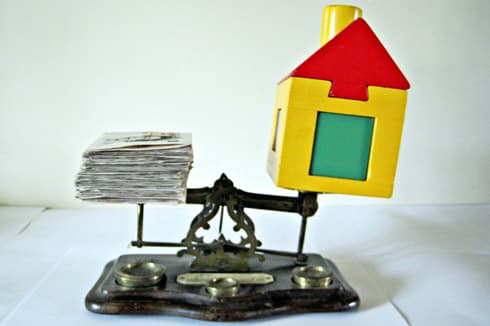- Check your credit report for errors.
- Know what refinance fees you should and should not pay.
- Mortgage refinance deals too good to be true usually are.
Refinance Tips Your Lender May Not Tell You Before Refinancing Your Home Loan.
Below are 6 refinance tips to help you get the best deal on your next refinance mortgage loan.
1. Check Your Credit Report
Depending on the type of loan you are applying for, the FHA has programs for people with credit scores as low as 580 but they are disappearing fast. Today, the minimum score for a home loan mortgage for Fannie Mae and Freddie Mac is 620. These numbers vary with market conditions.
Go to AnnualCreditReport.com to get a no-cost, no-gimmick copy of your credit report from each of the three major consumer credit reporting companies (commonly called "credit bureaus"). Review your report and dispute any inaccurate listings.
A credit score is just one part of the equation. A mortgage lender wants three things from a potential customer: Steady income, a relatively clean recent credit history, and a debt-to-income ratio of 35% or less. Customers who qualify for a mortgage have all three of these qualities, plus either a down-payment (if the loan is new) or equity in the property (if loan is a refinance).
2. Understand the Fees
Mortgage loans have many associated fees, some paid up front and some paid at closing. Be sure to ask for a break-down of all fees you will be paying and what those fees include, and ask for an explanation if you do not understand. See the Bills.com resource Refinance Fees to learn more.
3. Educate Yourself About Mortgages
Consider what kind of mortgage you want and educate yourself about the terms.
Adjustable rate mortgages sometimes have low initial rates but then adjust to high rates after an initial teaser period ends. Consider whether you will be able to afford the monthly payments after the loan adjusts to the higher rate.
Pre-payment penalties are sometimes included in loans; these penalties can make it too expensive for you to refinance out of a loan before the deadline date for a higher interest rate is triggered.
Interest-only loans often have low rates during the lifetime of the loans, but many require large final payments at the end of the loan, sometimes called balloon payments. Consider whether you will be able to make that payment or refinance out of the loan before that payment comes due.
4. Beware of Inflated Appraisals
Make sure you understand how the broker or lender selected the real estate appraiser. Review the appraisal to ensure it describes the house and neighborhood in a fair and accurate manner. If you take out a loan based on an inflated appraisal value, you may end up owing the bank more money than your home is worth. This may make it impossible for you to refinance in the future. See the "Appraisals and Reviews" section in the Bills.com resource Why it Takes so Long to Close a Mortgage to learn more about recent changes to the appraisal process.
5. Double-Check Loan Documents for Accuracy
Make sure the loan documents do not misstate your income, your debts, your credit score, or any other important facts, like whether you will be living in the property. See the "Settlement Section" in the Bills.com resource What to Expect at Closing to learn more.
6. Beware of One-Stop-Shopping Closings
If someone else hand-picks the real estate appraiser to value your home and the attorney to represent you at the closing, consider whether those individuals are going to give you truly independent advice and look out for your best interests. Three pieces of advice:
- Something that seems too good to be true usually is. Use your common sense
- Do not sign any document you do not understand.
- Closing can be hectic, but beware anyone who rushes you into a deal. Mortgage interest rates fluctuate, but as this was written in late 2011, interest rates have remained low and do not show any signs of rising soon.
See the Bills.com resource Refinance Fees to learn the typical costs of refinancing a home loan. Significant variances from these fees should be viewed warily.
